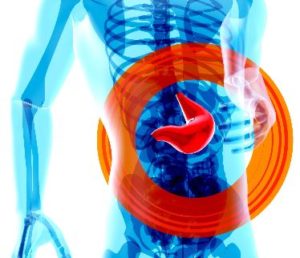
Primary liver cancer, also known as hepatocellular carcinoma (HCC), is a type of cancer that originates in the liver. It is the most common type of liver cancer and typically occurs in individuals with chronic liver diseases, such as cirrhosis, hepatitis B or C infection, or nonalcoholic fatty liver disease.
Primary liver cancer usually develops when healthy liver cells undergo genetic mutations and grow uncontrollably, forming a tumour. It can spread to other parts of the liver or other organs in the body. In this article, we discuss some early signs of primary liver cancer you must look out for and its treatment and prevention options.
Here are 10 potential early signs of primary liver cancer that you may want to watch out for:
1. Unexplained weight loss
Sudden and unexplained weight loss could be an early sign of liver cancer.
2. Abdominal pain or discomfort
Persistent abdominal pain or discomfort, especially in the upper right side, could indicate liver cancer.
3. Jaundice
A yellowing of the skin or the whites of the eyes, known as jaundice, is a common symptom of liver cancer.
4. Loss of appetite
A noticeable lack of appetite and a general feeling of being full even after eating small amounts may be a sign of liver cancer.
5. Fatigue
Constant tiredness, weakness, and a lack of energy can be early indications of liver cancer.
6. Swelling in the abdomen
As liver cancer progresses, fluid can accumulate in the abdomen, causing noticeable swelling.
7. Nausea and vomiting
Persisting nausea, vomiting, and general feelings of sickness can be symptoms of liver cancer.
8. Itchy skin
Severe and persistent itching without any apparent reason may be a sign of liver cancer.
9. Pale stools and dark urine
Liver cancer can affect the production of bile, leading to pale stools and dark urine.
10. Enlarged liver
In some cases, liver cancer can cause the liver to become enlarged, which may be detected during a physical examination.
It is essential to remember that these symptoms can also be related to other health conditions, and the presence of any of these signs does not guarantee the presence of liver cancer. If you experience any of these symptoms persistently, it is recommended to consult with a healthcare professional who can accurately assess your situation and provide appropriate advice and guidance. They will be able to provide proper guidance and perform any necessary tests to determine the underlying cause.
Treatment options for primary liver cancer depend on several factors, including the stage of the cancer, the overall health of the patient, and the extent of liver damage. Treatment may involve surgery, chemotherapy, radiation therapy, targeted therapy, immunotherapy, or a combination of these approaches.
Prevention and early detection are crucial for primary liver cancer. This includes practicing safe measures to prevent hepatitis B and C infections, reducing alcohol consumption, maintaining a healthy weight, and getting regular screening tests for liver diseases.
Disclaimer: This content including advice provides generic information only. It is in no way a substitute for a qualified medical opinion. Always consult a specialist or your own doctor for more information. NDTV does not claim responsibility for this information




 Driving Naari Programme launched in Chandigarh
Driving Naari Programme launched in Chandigarh






























